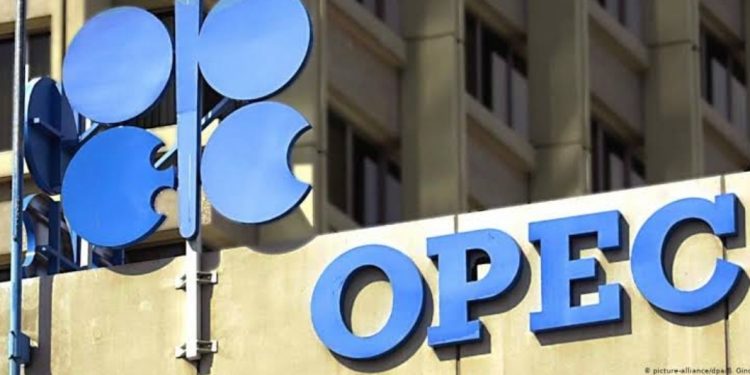By John Ikani
Despite the tightening oil market, the Organisation of Petroleum Exporting Countries (OPEC) and its allies, OPEC+, adjusted its monthly production quota for member countries and participating non-OPEC oil-producing countries.
This was even as it approved 1,718,000 barrels per day for Nigeria while other countries such as Angola, UAE, Iraq had 1,435,000b/d, 2,976,000b/d and 4,370,000b/d respectively.
The production quota which takes effect from March 2022, according to the statement dated February 2, 2022, was the decision of the 25th OPEC and non-OPEC Ministerial Video Conference Meeting.
OPEC said: “In view of current oil market fundamentals and the consensus on the outlook, the
“OPEC and participating non-OPEC oil-producing countries in the Declaration of Cooperation (DoC) decided to: Reaffirm the decision of the 10th OPEC and non-OPEC Ministerial meeting fn 12 April 2020, and further endorsed in subsequent meetings, including the 19th OPEC and Non-OPEC Ministerial Meeting (ONOMM) on 18 July, last year.
“Reconfirm the production adjustment plan and the monthly production adjustment mechanism approved at the 19th ONOMM and the decision to adjust upward the monthly overall production by 0.4 mb/d for the month of March 2022.”
In an overall production schedule attached to the release, Saudi Arabia and Russia were both given 10,331,000b/d.
Meanwhile, the OPEC 10 countries are to produce 25,061,000b/d while 16,233,000b/d was approved for non-OPEC countries.
The daily production of OPEC was reviewed to 41,294,000b/d.
The organisation reiterated the critical importance of adhering to full conformity and to the compensation mechanism, taking advantage of the extension of the compensation period until the end of June, this year.
It added: “Compensation plans should be submitted in accordance with the statement of the 15th ONOMM.”
It is worthwhile to note that oil prices are currently hovering at seven-year highs of $90 a barrel, prompting expectations from high consuming nations on OPEC to wet the market and bring down rising prices.




































